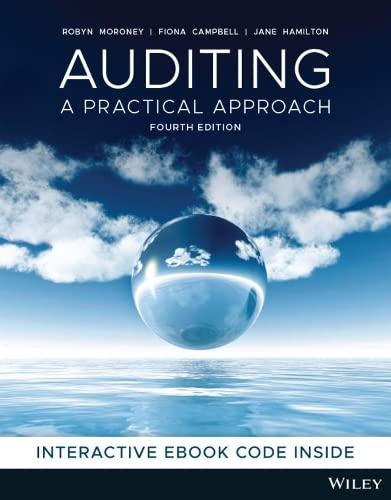Question
In the intricate landscape of business transactions, the importance of documentary evidence cannot be overstated. Documented evidence serves as the cornerstone for validating, recording, and
In the intricate landscape of business transactions, the importance of documentary evidence cannot be overstated. Documented evidence serves as the cornerstone for validating, recording, and safeguarding the authenticity of various financial and contractual dealings within the business realm. This evidence comes in diverse forms, ranging from physical paper documents to electronic records, each serving a specific purpose in supporting the veracity and legality of transactions.
Types of Documentary Evidence:
Invoices and Receipts: These written documents provide a clear record of the products sold or services rendered, including details such as quantity, price, and terms of payment. Invoices and receipts are crucial for both sellers and buyers to track transactions and fulfill financial obligations.
Contracts and Agreements: Formal agreements between parties involved in a transaction are documented through contracts. These legal documents outline the rights, responsibilities, and terms of the agreement, serving as a reference point in case of disputes or discrepancies.
Purchase Orders: Issued by buyers, purchase orders detail the items or services requested, quantities, and agreed-upon prices. They establish a clear communication channel between buyers and sellers, facilitating a smooth transaction process.
Bank Statements and Financial Reports: These documents provide a comprehensive overview of financial transactions, including deposits, withdrawals, and other monetary activities. Bank statements and financial reports are critical for internal and external financial analysis and auditing.
Shipping and Delivery Documents: For businesses involved in the sale of physical goods, shipping and delivery documents such as bills of lading and packing slips confirm the shipment and receipt of products, ensuring transparency and accountability.
Correspondence and Emails: Written communications, whether in physical or electronic form, can serve as documentary evidence in business transactions. They provide insights into negotiations, agreements, and any changes in terms or conditions.
Importance of Documentary Evidence:
Legal Validity: Properly documented transactions hold legal weight, providing a basis for resolving disputes and ensuring legal compliance.
Financial Accountability: Documentary evidence supports accurate financial record-keeping, aiding in budgeting, financial planning, and taxation.
Auditing and Compliance: Businesses rely on documentary evidence during internal and external audits to demonstrate compliance with regulations and accounting standards.
Risk Mitigation: Well-documented transactions mitigate the risk of misunderstandings, disputes, or fraudulent activities, fostering trust among parties involved.
Discuss the role of electronic documentation in modern business transactions and the potential advantages and challenges associated with its widespread use.
Step by Step Solution
3.48 Rating (151 Votes )
There are 3 Steps involved in it
Step: 1
The role of electronic documentation in modern business transactions is pivotal As businesses continue to embrace digital transformation electronic do...
Get Instant Access to Expert-Tailored Solutions
See step-by-step solutions with expert insights and AI powered tools for academic success
Step: 2

Step: 3

Ace Your Homework with AI
Get the answers you need in no time with our AI-driven, step-by-step assistance
Get Started


